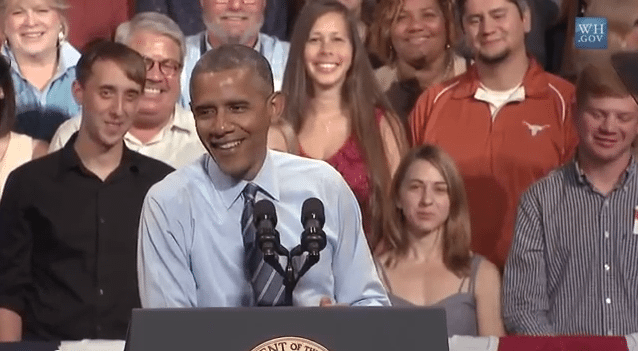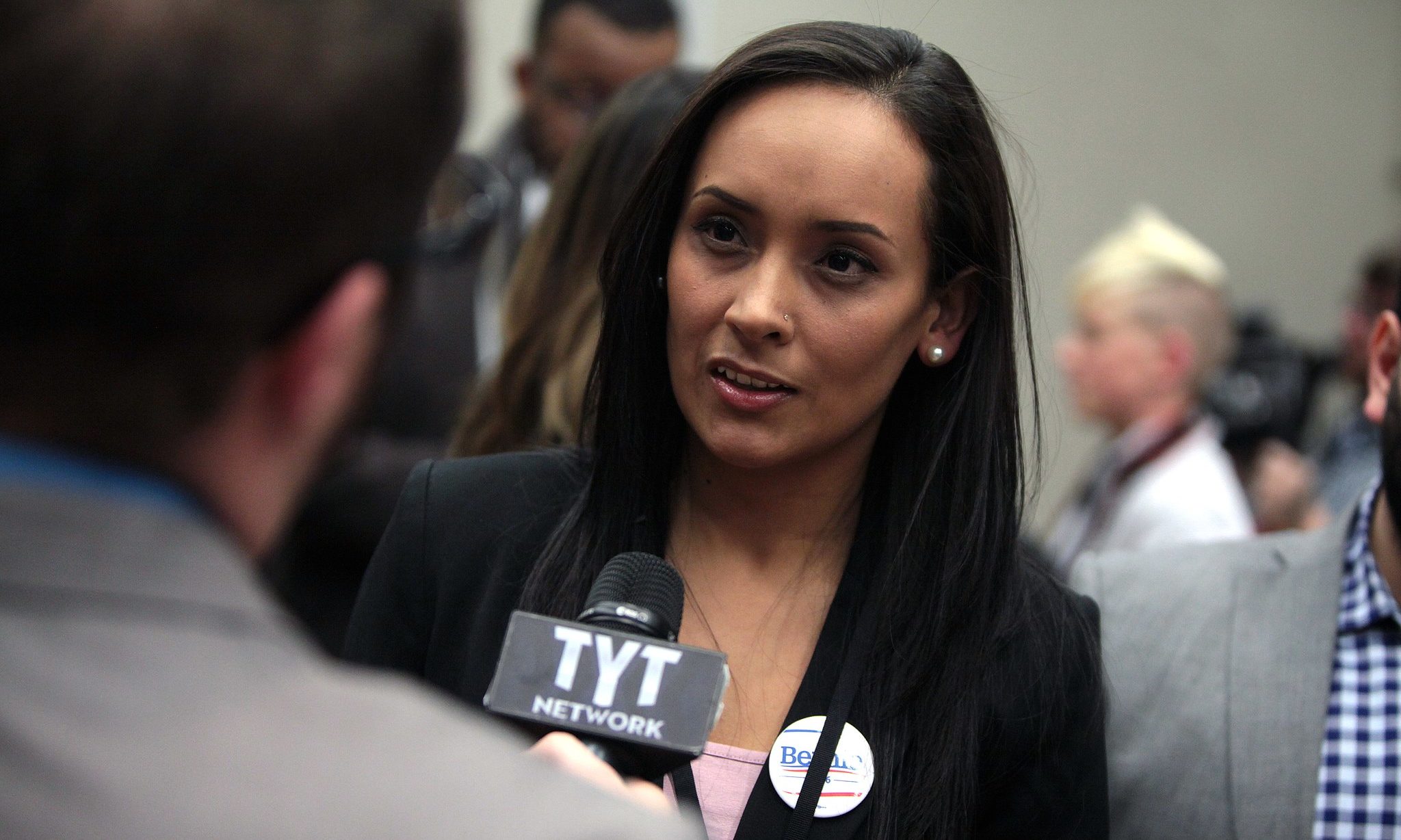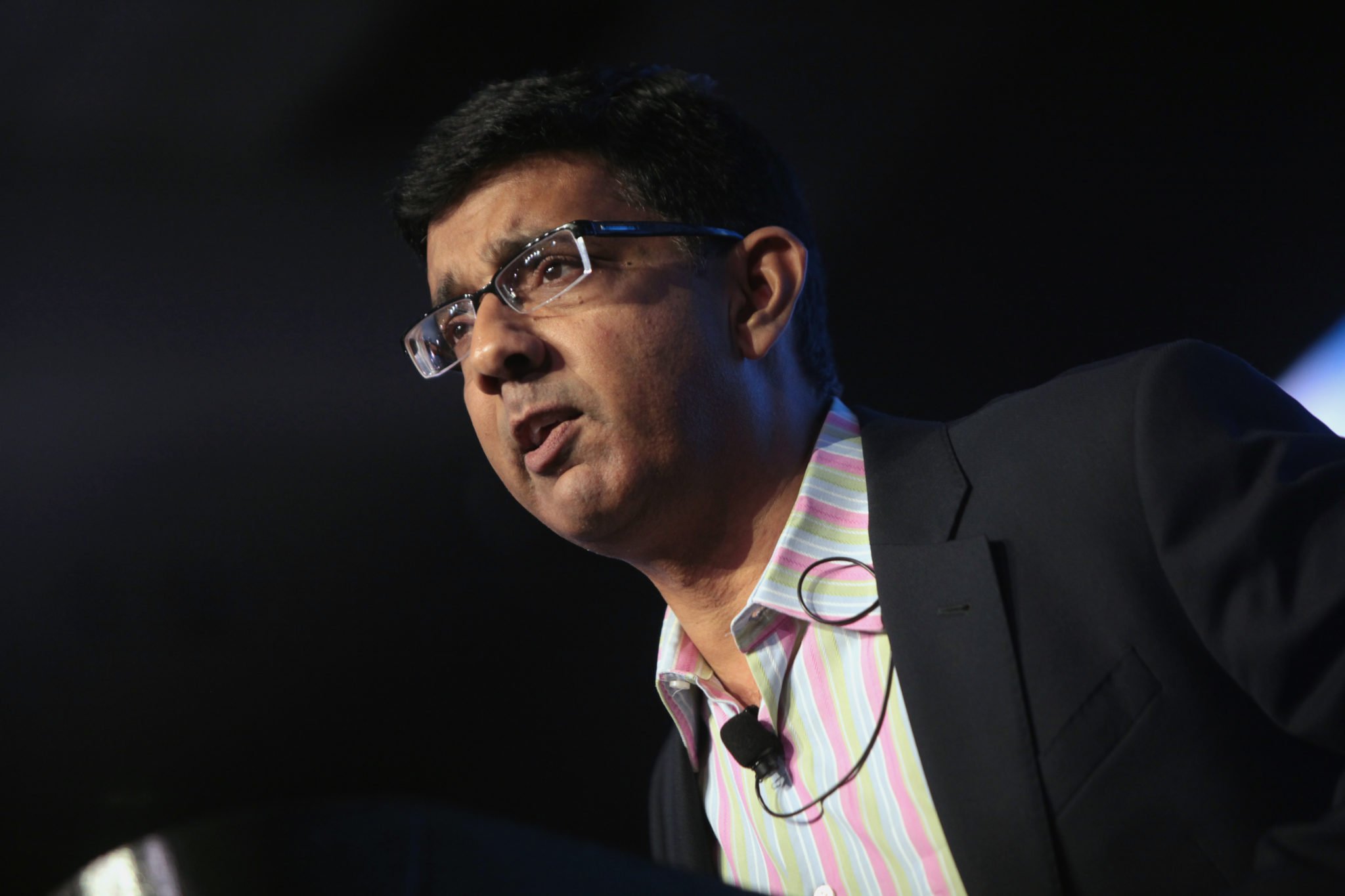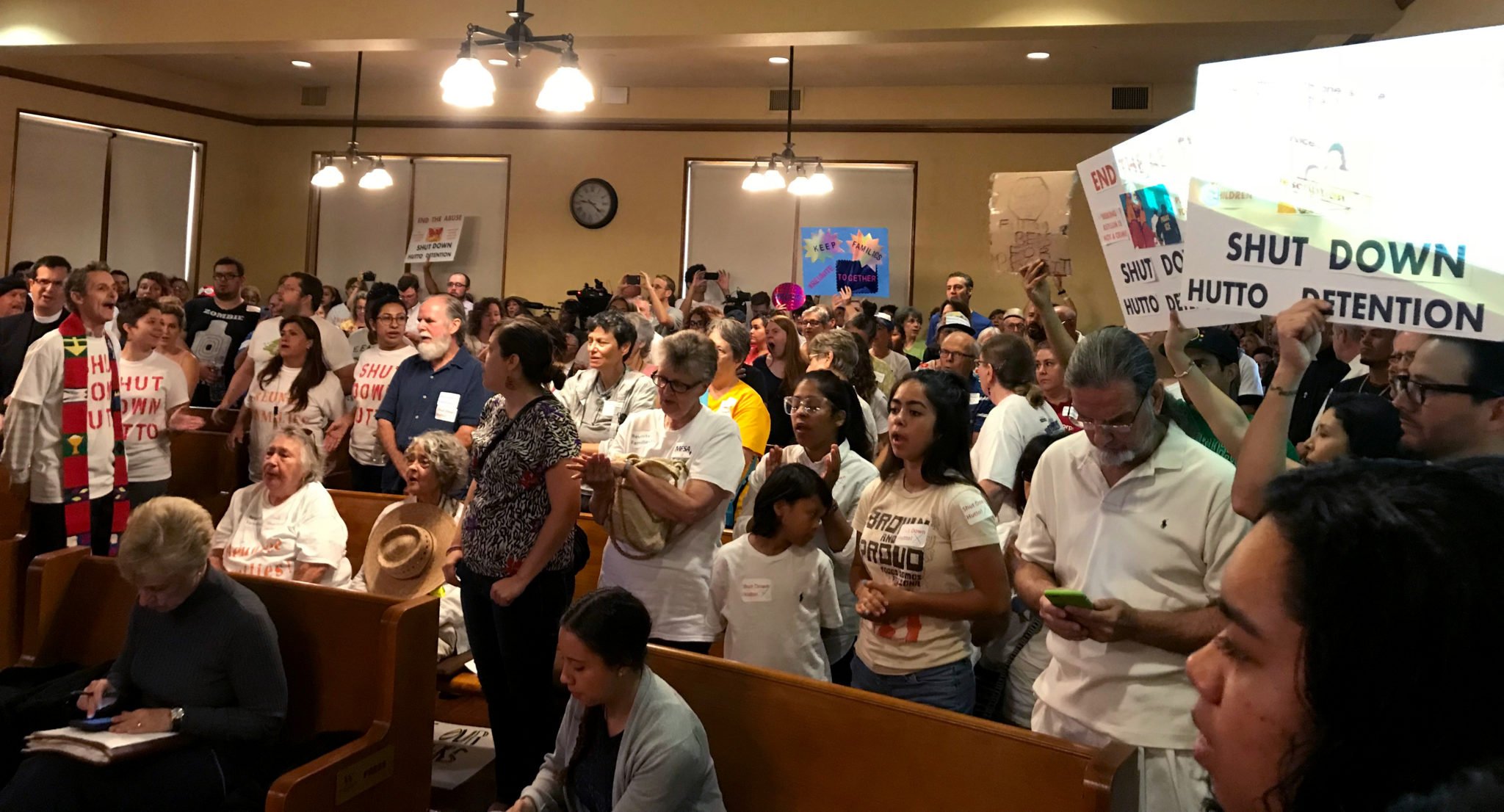
Obama in Austin: Yes We Can…Finish Out a Second Term
In Austin today, President Barack Obama seemed to be straining from the weight of a system that's not working as well as it used to.

Above: President Obama speaks at the Paramount Theatre in Austin, July 10, 2014.
There were two Barack Obamas that showed up to the Paramount Theatre in Austin today for a domestic policy speech, one of the last legs of a cross-country tour. There was Barry, the friendly fellow with a personal life and two kids who is grappling with the intense, soul-sucking drain of what must be one of the world’s worst jobs, and there was President Obama, the leader of the States of America, ostensibly United but in reality, an increasingly fractious place. He has two-and-a-half more years to preside over a policy-making process in which it seems more and more clear that very little productive—and I mean very, very little—can actually get done.
Both Obamas hate Washington, but for different reasons. Barry’s complaint is easy to understand: The Oval Office is a punishing, dehumanizing workplace, and that must be an infinitely harder burden to bear when the system is frozen around you and you can’t seem to gain any headway.
Before he came to Texas, Obama was in Denver, where he had a few beers and played a little pool with Colorado Governor John Hickenlooper. It was the most normal night he would have had in some time, but for pundits, his “boozy” night out was an outrage and a scandal. How could the president have fun when many of his fellow Americans, in point of fact, were not having fun?
At the Paramount, Obama was energetic and present, but at times it seemed to be the kind of unregulated energy that masks a deeper fatigue. Obama’s always seemed to have a certain connection to Austin, and he started out by telling the enthusiastic crowd one reason why.
“The last time I walked a real walk, where I was kind of left alone, was in Austin.” Before one of the debates in the 2008 Democratic primary, he left his hotel and walked around Town Lake. “I was walking along the river, and no one noticed me. And it felt great.” Then on the way back, someone recognized him. His aides descended. And the rest was history.
“I’ve enjoyed the last few days, getting out of Washington,” he said. “At each step I’ve been able to meet people.” In Austin, that number included the late-morning crowd at Magnolia Cafe on Lake Austin Boulevard. He met some students about to travel to Peru, and the Incan ruins at Machu Picchu. “I’ve always wanted to go there,” he says he told them. When he was invited to tag along, he replied: “I’d love to, but there’s some things I gotta do.” The wanderlust of an American president.
Among the everyday folk that Obama met in Texas was one well-coiffed fellow who doesn’t hold much truck with the president: the governor of our great state, Rick Perry. Perry, too, is biding his time before his term ends. Perry desperately wants to have that last “real walk” someday, and so he spent much of the last week trying to outmaneuver Obama and win the best photo op.
The president finally consented to meet him—in an airport meeting room in Dallas with a number of other officeholders where huge Texas and U.S. flags were displayed side-by-side as if it were a meeting of two sovereign nations. Perry won a few free cable news interviews, where he turned around and trashed the man he’d had a cordial meeting with hours before. But in terms of disrupting the visit, he was effectively neutralized.
Back at the Paramount, Obama talked up the economic recovery, and presented a wish list of “common sense” items that he’d like to see Congress take up before his time in office ends.
America, since the crash, had “recovered faster than just about any nation,” he said. “There’s no doubt that we’re making headway. By almost every measure we’re better off than when we took office.” The unemployment rate was low again. The nation is increasingly energy independent, even while its carbon footprint is shrinking. More people have healthcare, more people have jobs.
But there are deeper, fundamental problems with the American system going forward that needed to be addressed, he said. For one, the average American’s income has stagnated, a problem that long predates Obama’s presidency. “This country is not going to succeed unless everyone has a shot,” he said, and to improve individual opportunity and the stability of the nation’s economic model generally, there were things that Congress had to do—things that shouldn’t, by rights, be controversial.
The nation’s infrastructure—roads, ports, rail networks and airports—have been in relative decline for years, but there’s no appetite among congressional Republicans to fund improvements. The government could facilitate job training programs to help the long-term unemployed find work, but the situation in Congress is the same there. Government-funded research programs of the kind that helped secure American scientific dominance after World War II have been pushed to the back of the line.
These weren’t ideological projects—the great Republican presidents of the past had a hand in all of them, Obama said. Many of his proposed domestic programs are not dissimilar from the ones proposed by Eisenhower. But they have no chance of passage: “Republicans in Congress have voted down every smart proposal that could have helped the middle class.”
“The best thing you can say about congressional Republicans is that so far this year they haven’t shut down the government,” he said. “But of course it’s only July.”
But congressional Republicans haven’t done nothing this year. For one thing, they’re suing Obama for his use of executive orders to change policies of government agencies, in a gimmicky midterm-election-year effort that even conservative commentator Erick Erickson called “nothing more than political theater.”
Obama, loose throughout the speech, got even more animated on this point. “I’m issuing executive orders at the lowest rate in a hundred years,” he said.
“I hear some of them out there say, ‘impeach him,’” he said. “Really? You’re going to sue me for doing my job? You’re going to sue me for doing my job while you don’t do your job?”
He added: “There’s a great movie called The Departed.” In one scene, Mark Wahlberg’s character yells at another cop after a failed stake-out. “Wahlberg looks up and says, ‘I’m the guy doing my job. You must be the other guy.’”
At times, his frustration seemed to boil over. On congressional Republicans’ decade-long failure to reconcile themselves with the prospect of immigration reform, he seemed particularly pointed. “They don’t even have enough energy or enough organization to vote ‘no’ on the bill.” They wouldn’t even let it come to the floor. “Ronald Reagan passed immigration reform and you love Ronald Reagan,” he said. “What changed?”
He ended by beseeching the crowd not to give into cynicism, and to choose hope. He would continue to fight for “the American Dream,” and “I am going to need you to be right there with me.”
But the Obamas are on their way back to Washington, where hope seems an insufficient corrective to the stagnation that’s come to afflict the halls of American power.
Outside, a few tea party protesters stood around a Gadsden flag, holding signs that called for border security (and Obama’s impeachment.) Obama’s contention was that Americans could come together around issues like our infrastructure needs, so I asked them about the issue without mentioning Obama’s name.
“We need a really frugal body to study whether that’s really necessary at this time,” said one woman. Maybe it was, but she doubted it. The roads she’d seen around the country seemed fine. A friend came over and challenged the premise. “How much money are we investing in roads right now?” When I told her it was in long-term decline, she went silent for a moment, then returned to getting her picture taken.


